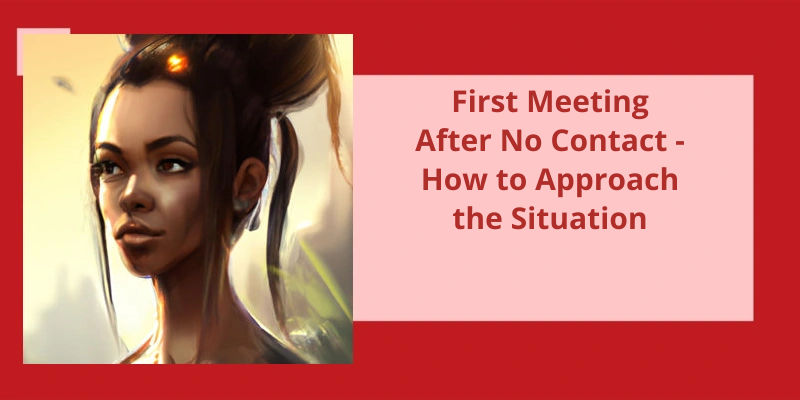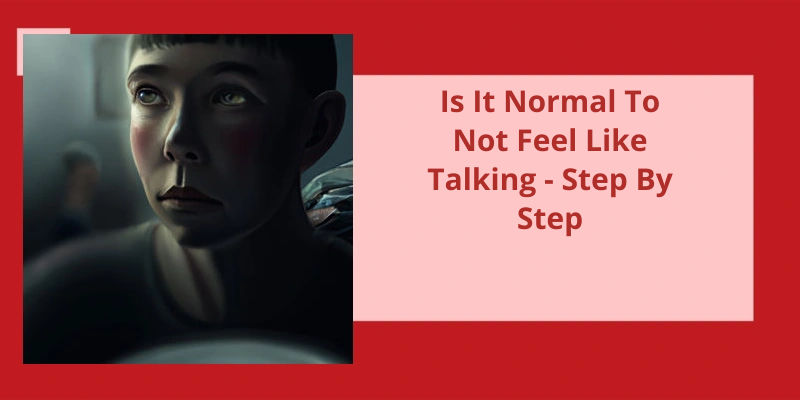Love, in all it’s many forms, is a powerful force that can have a significant impact on our lives. However, not everyone may be able to recognize or accept the love that’s given to them. When someone doesn't believe that you love them, it can be a frustrating and confusing experience. Despite your best efforts to express your feelings, they may remain skeptical or dismissive of your affections. This can be hurtful and damaging to the relationship, leaving both parties feeling unsatisfied and unfulfilled. It's important to understand why someone might struggle to believe that you love them so that you can work together to address the underlying issues and rebuild trust and intimacy in your relationship.
What Is It Called When You Don’t Believe Someone Loves You?
Relationship Impostor Syndrome, also referred to as “imposter phenomenon” or “imposter complex,” is a psychological pattern that affects individuals who struggle to believe that their partner truly loves them. These people may experience feelings of inadequacy, self-doubt, and a lack of self-worth, which leads them to question the authenticity of their partners affections.
Additionally, societal and cultural expectations surrounding relationships can exacerbate these feelings, particularly if an individual feels that they aren’t meeting certain standards or are somehow failing as a partner.
People suffering from this condition may also avoid confrontation or conflict in their relationships, fearing that they may be exposed as a fraud or unworthy of their partners love.
Fortunately, there are ways to manage and overcome relationship impostor syndrome, including therapy, self-reflection, and developing a supportive network of friends and loved ones.
Understanding the fear of love, or philophobia, can be a complicated matter. For people who experience it, even the thought of love can spark anxiety, panic or distress. It can have a significant impact on personal relationships, causing individuals to distance themselves emotionally or avoiding relationships entirely. But what causes this fear, and how can it be overcome? Let’s take a closer look at this complex and often misunderstood condition.
What Is It Called When You Don’t Believe in Love?
“Phobia” is the Greek word for fear. By combining the two words, philophobia refers to a fear or aversion to love. This condition isn’t recognized as a diagnosable mental illness, but it can have a significant impact on a person’s life, leading to isolation, loneliness, and emotional distress.
The fear of love can manifest in various ways. Some people are afraid of falling in love or being in a committed relationship, while others have a fear of intimacy or emotional vulnerability. Some may feel anxious or uneasy around people who express affection or love towards them, while others may simply avoid love altogether, choosing to remain single or avoid close relationships.
The causes of philophobia aren’t fully understood, but they may be related to past traumatic experiences, such as abandonment or abuse, or negative attitudes towards love and relationships learned from family or societal influences. This fear can also be a symptom of underlying mental health conditions, such as anxiety disorders or depression.
Overcoming philophobia can be a challenging process, requiring a willingness to confront and work through deep-seated fears and emotions. Professional counseling or therapy can help individuals explore the root causes of their fear, develop coping strategies, and learn healthy ways to manage their emotions and relationships.
When Does a Fear of Love Become Pathological? How to Distinguish Philophobia From Healthy Caution in Relationships.
This article discusses the difference between healthy caution in relationships and pathological fear of love, known as philophobia. We explore how one can differentiate between the two and identify when a fear of love crosses the line into a phobia.
It’s important to recognize when a relationship has run it’s course. It’s normal for feelings to change over time, but it can be difficult to accept when you no longer love someone. In this article, we’ll explore some signs that may indicate the spark has fizzled out, and how to navigate the emotions that come with realizing you don’t love someone anymore.
What Are the Signs of Not Loving Someone?
When you first fall in love, everything about the person seems perfect. From the way they smile to how they hold your hand, it all feels like magic. However, as time passes, you may start to feel less enamored with them. It’s a tough realization to make, but sometimes, you just don’t love someone anymore. It’s important to recognize the signs of losing love before it’s too late.
One of the biggest signs that you don’t love someone anymore is if youre completely fine without them. If you don’t hear from them for days or even weeks, youre not bothered by it. You may have once pined for their affection, but now youre content with being alone or spending time with friends. In fact, you may find yourself actively avoiding them.
Another sign is that you find yourself venting about them to others. When youre around your friends, youre constantly complaining about them or talking about how unhappy you are. You may try to convince yourself that youre just blowing off steam, but deep down, you know that it’s a sign that your love has withered.
Another common sign is that you simply don’t enjoy being around them anymore. Things that you used to find cute or endearing now just irritate you. You don’t laugh as much or feel as relaxed when youre with them. You may even find yourself wishing that you were somewhere else whenever youre together.
Feeling annoyed with someone is one thing, but feeling nothing at all is even more concerning. When the love is gone, you may find that youre just going through the motions of the relationship. You may feel numb, indifferent, or even repulsed by them. This can be a difficult feeling to deal with, but it’s important to acknowledge it and take action.
Other dynamics in your life may make you realize that you no longer love your partner. For example, you may find yourself drawn to someone else. While cheating is never the right answer, having a crush on someone else can be a strong sign that your love for your partner has faded.
It’s important to be honest with yourself and your partner about how you feel. Staying in a relationship that’s lost it’s spark will only lead to hurt feelings and resentment. While it may seem scary to face the truth, youll be able to move on and find happiness once again.
It’s common to feel hesitant when it comes to love, especially if you’ve experienced past heartbreak or have personal reasons for not believing in it. However, it’s important to remember that everyone’s journey towards love is different, and there’s no right or wrong way to approach it. Instead, it’s essential to follow your heart and do what feels right for you at the moment.
Is It Normal to Not Believe in Love?
There are many reasons why someone might not believe in love. Perhaps they’ve experienced heartbreak or trauma in past relationships that’s left them feeling disillusioned with the concept of love. They may have also grown up in an environment where love was not modeled or experienced in a healthy way. Whatever the reason, it’s important to not judge oneself for not believing in love and to give oneself time and space to work through those feelings.
It’s important to remember that everyone experiences relationships and love differently. What works for one person may not work for another, and that’s okay. Some people find that they’re able to form deep and meaningful relationships without romantic love being a part of the equation. Others may feel fulfilled by focusing on their career, hobbies, or personal growth instead of pursuing romantic love. There’s no right or wrong way to experience love and relationships, and it’s important to respect ones own desires and needs.
Are there past experiences or thought patterns that are influencing these beliefs? By understanding the root cause of these feelings, one can work towards healing and finding a path towards a more fulfilling life. Talking with a therapist or counselor can be a helpful way to explore these feelings in a safe and non-judgmental environment.
It’s also important to remember that not believing in love doesn’t mean that one is incapable of experiencing love or forming meaningful connections with others. There are many different types of love, and platonic or familial love can be just as rewarding and fulfilling as romantic love. Building healthy and supportive relationships with friends and family can help to fill the void left by not pursuing romantic relationships.
Ultimately, it’s important to be kind and patient with oneself when it comes to matters of love and relationships. There’s no rush or timeline for experiencing love, and it’s okay to take time to figure out what works best for oneself. Whether one believes in love or not, there are many different paths to happiness and fulfillment in life. By staying open-minded and true to oneself, one can find a life that’s rich and rewarding in it’s own unique way.
How Can One Balance the Desire for Love and Connection With the Fear or Skepticism of It?
- Practice self-reflection to understand your fears and skepticism surrounding love and connection.
- Take things slow and don’t force yourself to rush into a relationship.
- Communicate openly and honestly with potential partners about your concerns and boundaries.
- Seek therapy or counseling to address any underlying issues that may be affecting your ability to form connections.
- Focus on building strong friendships and platonic relationships to fulfill your emotional needs.
- Remember that it’s okay to take breaks from dating or pursuing romantic connections if you need time to prioritize yourself and your well-being.
Source: Should You Believe in Love? Why Love May be Crucial to …
Conclusion
In conclusion, the feeling of love is a complex and often delicate emotion that can sometimes be difficult to express or understand. It's important to communicate openly and honestly with your loved one and try to understand their perspective. Remember that actions speak louder than words, so it's important to demonstrate your love through gestures, gestures of affection, and genuine efforts to make your partner feel loved and appreciated. Ultimately, building trust and strengthening your relationship requires patience, understanding, and genuine compassion.






